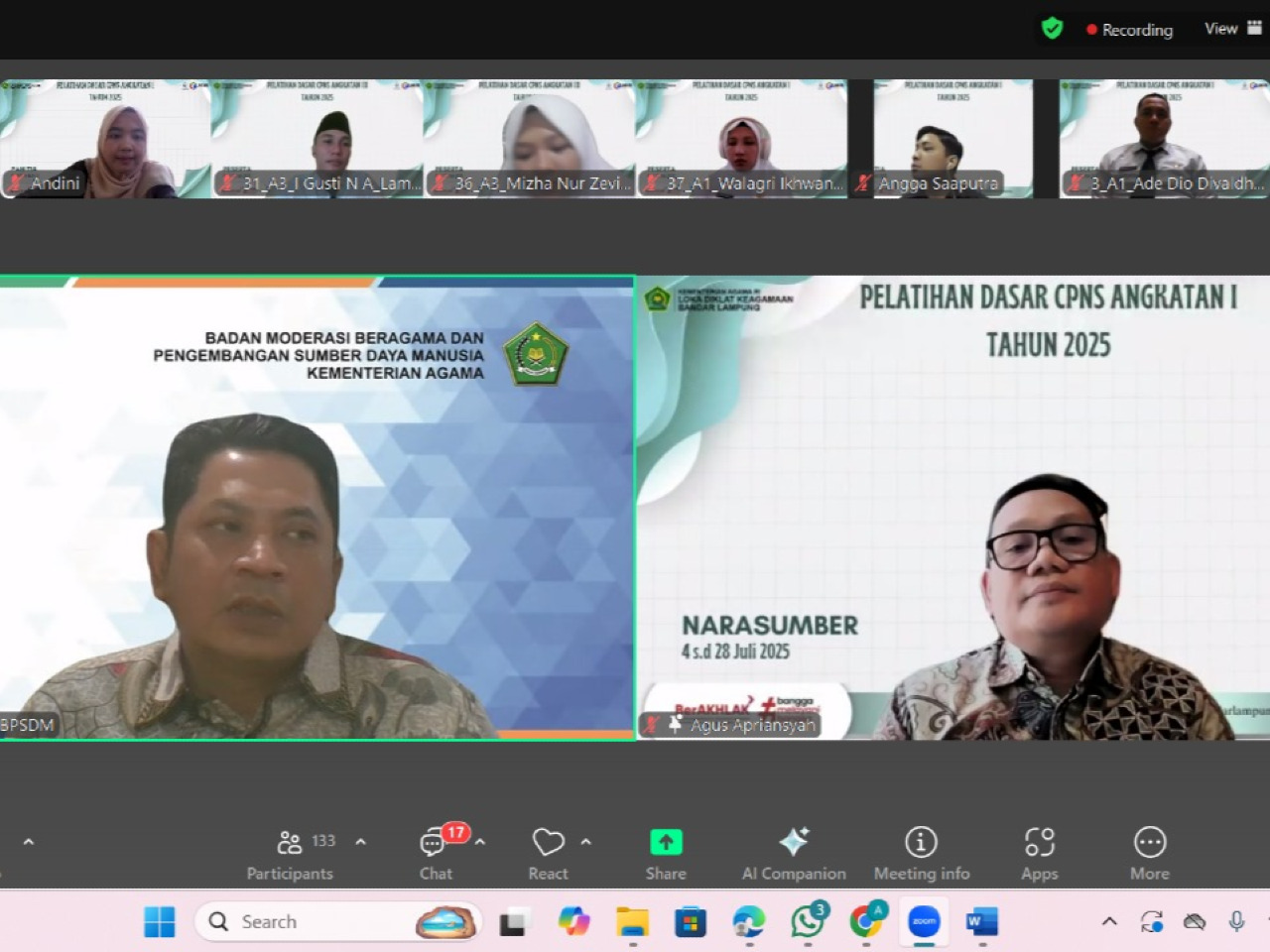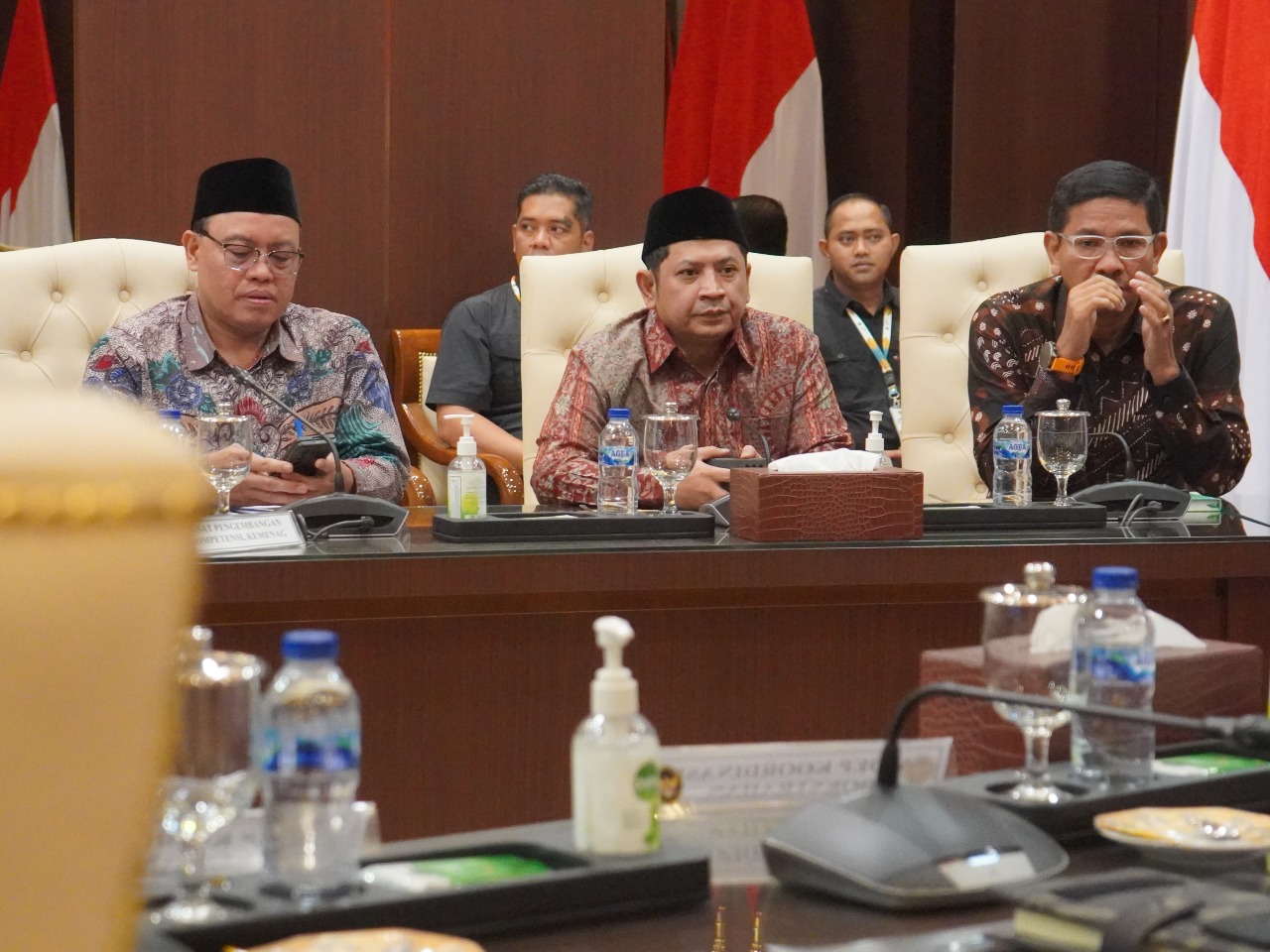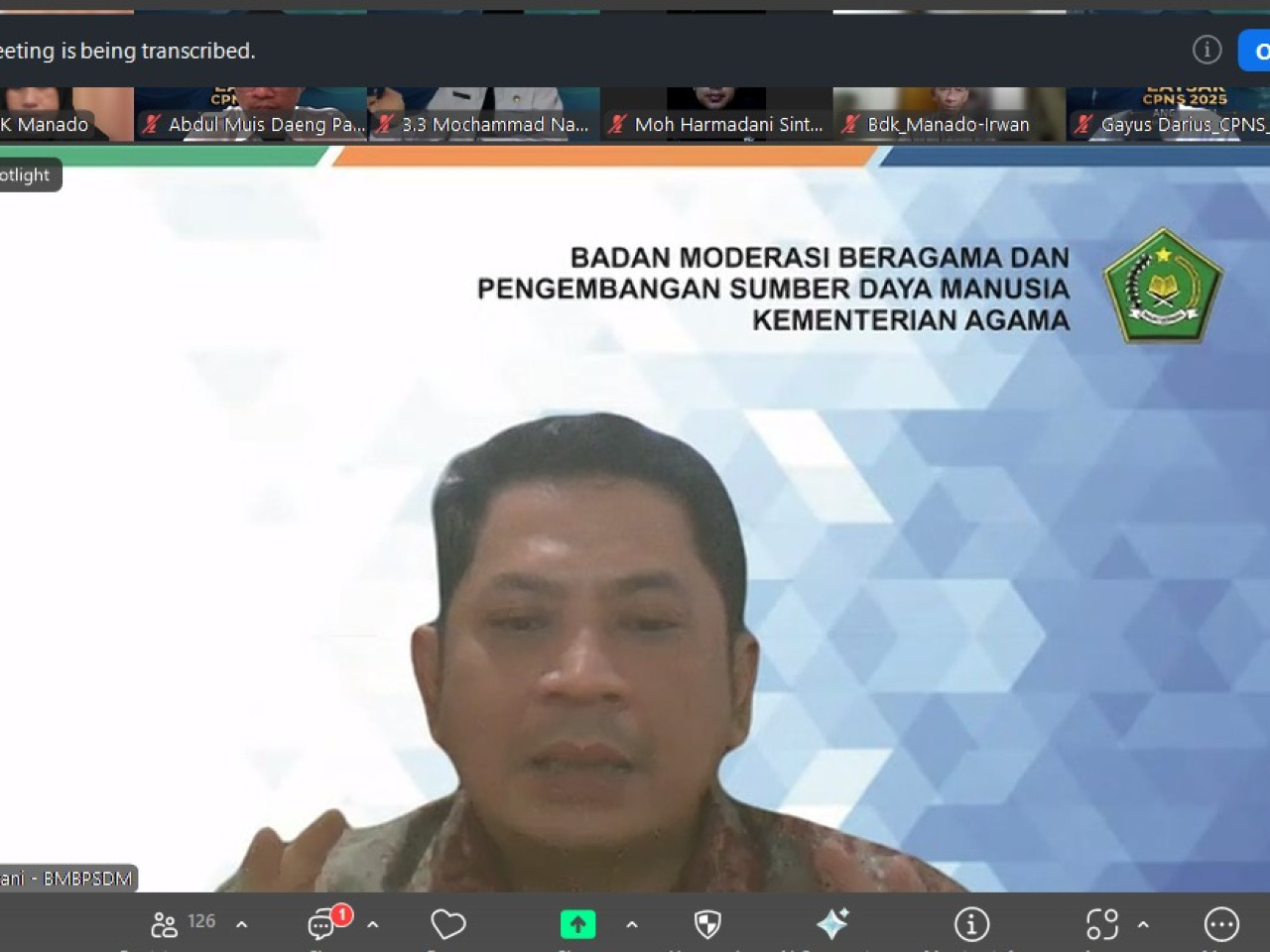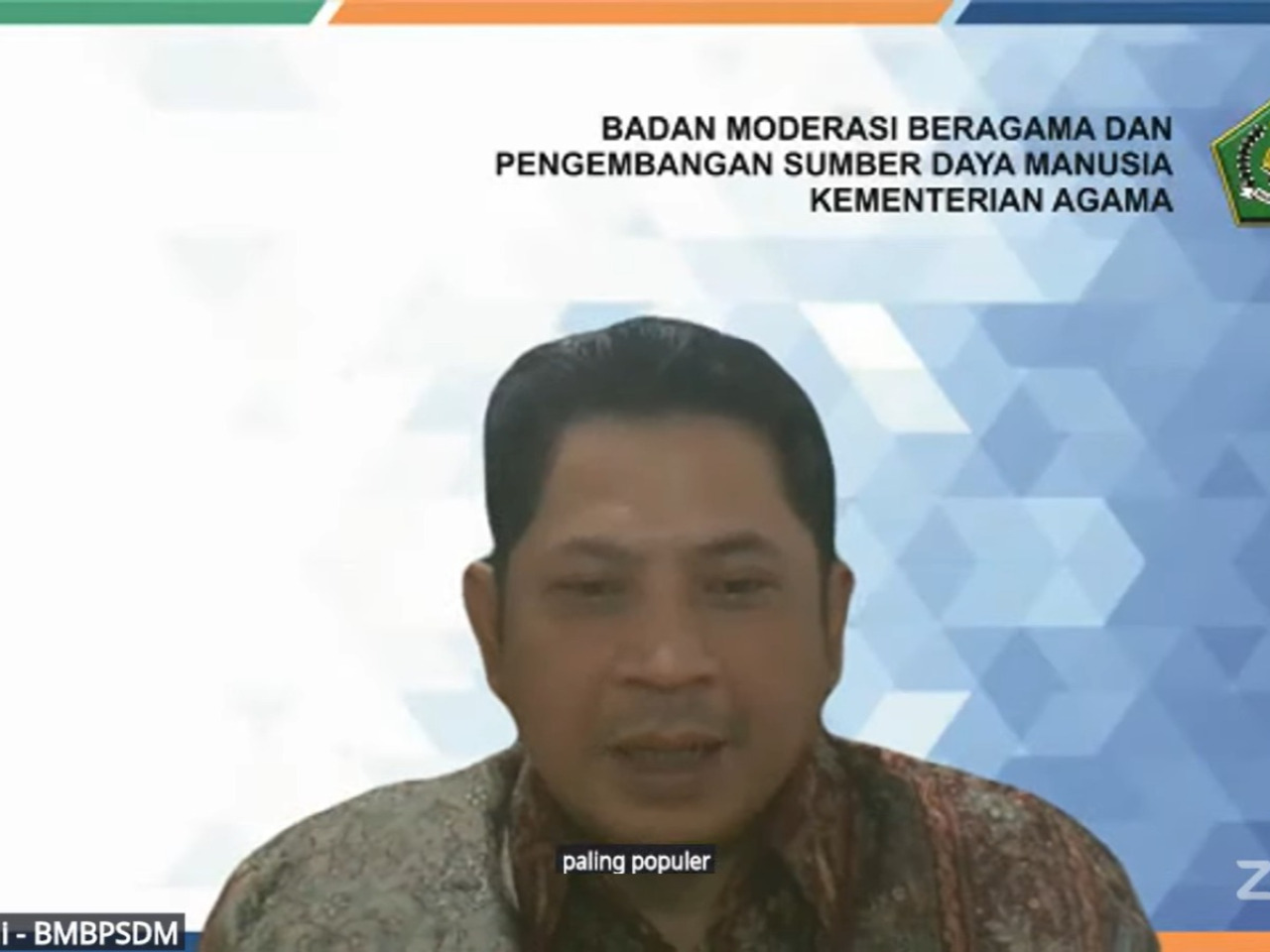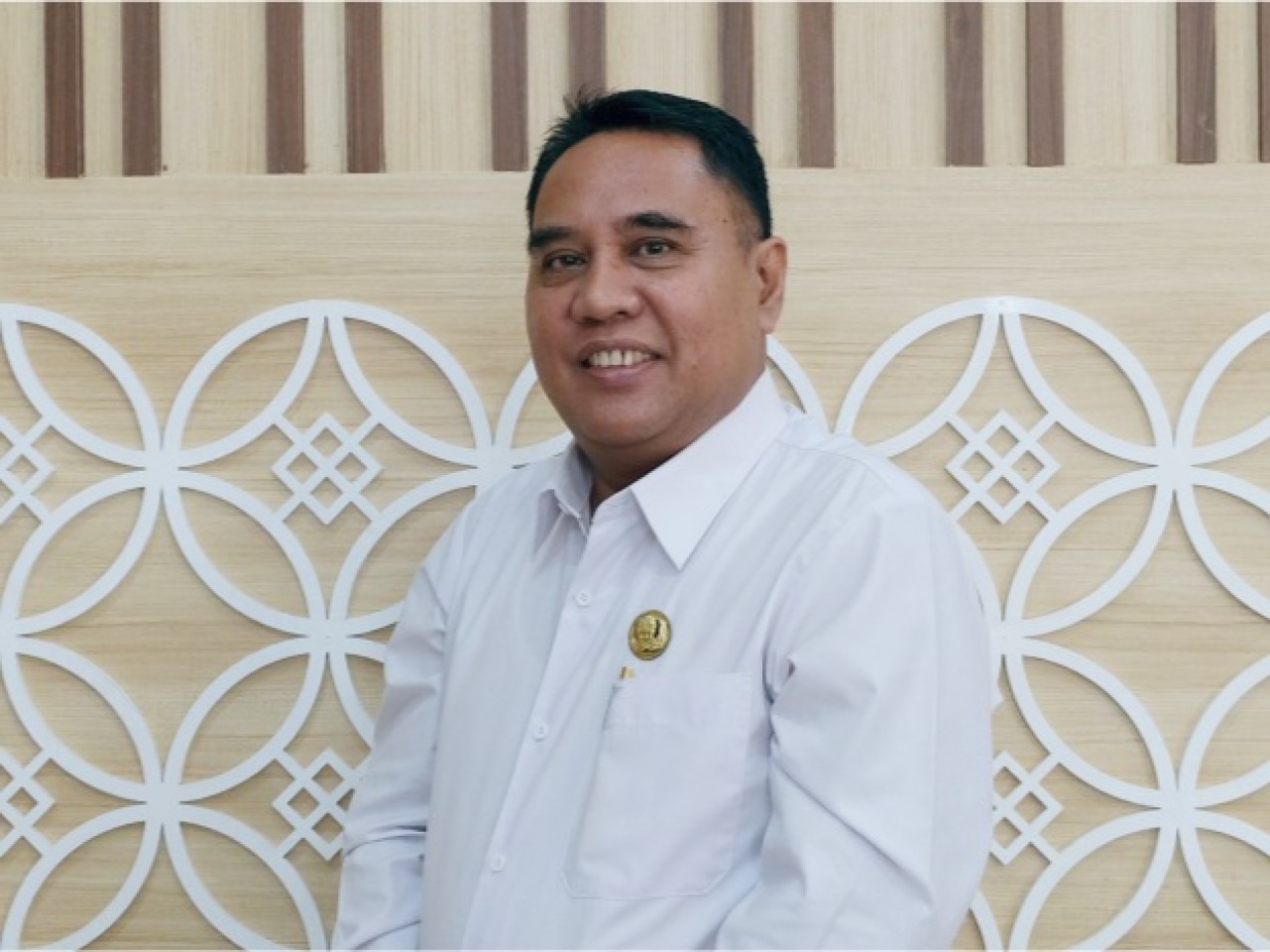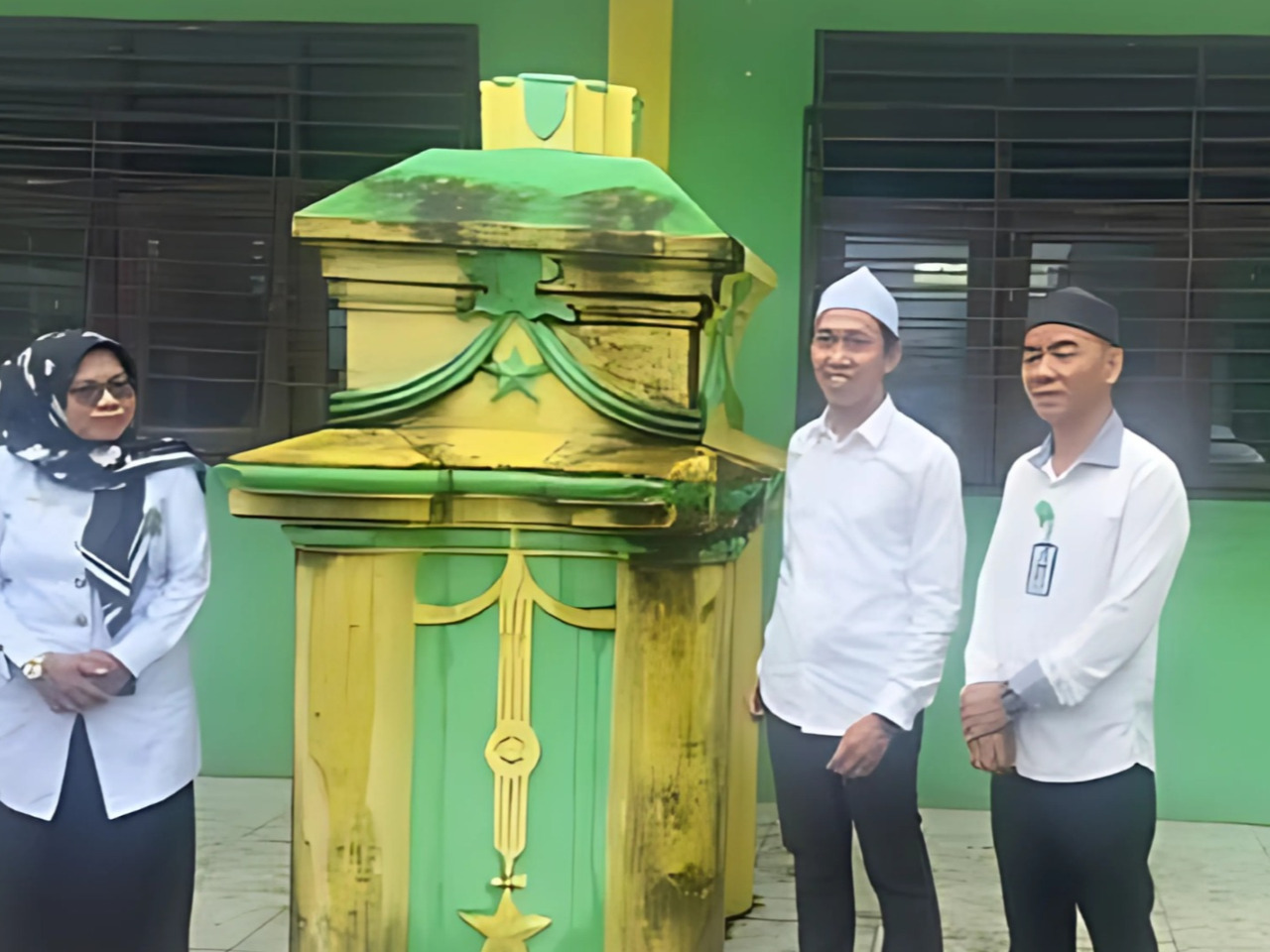How to do Religious Tolerance and Religious Dialogue in Indonesia

Selasa, 03 Juli 2012
by Machasin
Introduction
Tolerance is the capability of living with something (including other’s attitude and situation) that you do not like. You do not like it because it is different of what you are accustomed to, not in accordance with values you hold or tradition you have been raised in. Sometime you have to live with such kind of thing in order that you may prevent of having graver difficulties or that you understand the cause making another doing what you do not like and consider it as something natural in his/her situation.
For example, when I was writing this paper, a neighbor who lived right in front of my room had his motorcycle uproar that I lost my concentration and had to stop writing for a while. Actually, using my own value that anyone has the right of a quiet surrounding—something that my neighbor may not be aware of—, I could go reprimand him for what he was doing. However, might forget my right and let him do what he was doing with the risk of not finishing my paper in due time. Here I tolerated him.
In a pluralistic society like, the readiness to tolerate attitude, behavior and condition that are "uncommon" constitutes an important capital for living harmonious life, or even a must. Without tolerance, conflict will occur at any time making self-development hindered. However, giving to much tolerance is no less dangerous. It may accumulate dissatisfaction to the point of unbearability that may cause a greater irruption.
Besides, tolerance is actually a provisory parsial step to do with living together. One cannot tolerate everyday, except very few people. One may tolerate in a longer time than the others do, but there is always limit that one cannot go beyond. In addition, it is often that the one whom you tolerate of doing such and such thing is not aware that you tolerate him. This means that tolerance has no effect whatsoever in the development of the society. Therefore, there should be a second step, which is dialogue to make a mutual understanding on which harmonious living together may be built. Through dialogue we may understand other’s situation, aspiration, belief, values, problems etc. that cased him/her do things that disturbed us. In the above-mentioned example, for instance, dialogue may make me understand my neighbor made up roaring noise with his motorcycle. Perhaps he did it to blur the noisy quarrel happening in his house or to clean the muffler his motorcycle from oil deposit, and then I will consider his doing as acceptable.
The problem is, then, how we do tolerance when then the action, attitude or situation is religious. Isn’t it true that religion is a sensitive thing and that many people risk their life for it? There are also people who think that there should be no tolerance in matters of religion, since it is only a sign of weak faith. Dialogue, also, is considered by many as sign of a weak faith. In addition, dialogue will contaminate faith.
Tolerance
It is not easy to fix the limit by which human liberty and limitation should end. Laws, rules and norms may indeed limit human liberty, but at the same time they assure its application or better give fair space for individuals to exert their liberty. Without them there will be the law of "survival of the fittest". Or, some members of the community or human race may be privileging more liberty, whereas others have only narrow space to roam in, or even some powerful individuals take over the scene giving no room for others. Management of liberty will only assure free space for every member of the community, as long as it is based on deliberation of every member or at the majority.
The awareness that it is the right of every individual person to be free in living whatever he/she believes to be the best for his being human constitutes principal basis on which religious tolerance can be built. In other words, first one has to hold the principle that there should be no compulsion in practicing religion.[1] However, liberty has to be limited by a second principle, i.e. that it must be applied in such a way that a liberty of one individual may not cause another one loss his/hers. This is not an easy thing, since sometimes we find inter-waving thing between two or more religious group: the one believes in goodness of an action, while others have the opposite.
Take for example, many mosques use loudspeakers in their rituals such as call for prayer (adh?n) and Qur’an recital. Such a custom may disturb others. Muslims often think that it is only natural to let people be aware of the time for prayer but they do not realize that the loud adh?n may deprive many from quietness they are in need of. Another example is that for the majority of Muslims Muhammad is the Seal of the prophecy and there comes no prophet after him, but for the Ahmadiyya the founder, Mirza Ghulam Ahmad was a Prophet, though he does his mission within the tradition of Islam. For the majority of the Christians, Jesus is Divine Saver, while for Muslims he was one of the Prophets. For the majority of people of Nahdlatul Ulama’, visiting saint tombs is considered pilgrimage, while for those of Muhammadiyah it is a heresy prohibited by religion.
It is natural that one has faith and belief, and others may not raise any objection when he/she hold them as self conviction without any action to exert them in public domain or to force others to have hold them. Objection can only be made at time the expression of faith or belief will harm him/her, such as suicide, or people related to him/her. For instance, when a religious group believe the apocalypse will happen in very short time and for anticipation they throw away every thing they possess and meditate all the time. What should be done in facing such a situation? Can we interfere? Do they have right to do what is dictated by their belief?
Here, of course, we should bear in mind “universal” values and basic human rights. In Islamic tradition, the theologian-jurists formulated what is called the objectives of the [religious?] legislation (maq?s
?id al-shari’a) that consist of maintaining five things, namely: life (nafs), belief (d?n), consciousness (‘aql), dignity (‘ird?), possession (m?l) and offspring (nasl). Tolerance, therefore, may be given to anything that is not in contradiction with the maintenance of these five things. We may add to them principles that are very important in assuring good life for humankind, such as maintaining the environment and public space, which were overlook by the formulators of religious teachings.
Thus, when we find a religious act or an act based on religious belief that may harm the actor or other human being, we should not tolerate it. However, this does not mean that anyone can raise objection or to express aversion to the actor, since it may cause conflict. To let the responsibles for the security (police, head of village etc.) the situation and ask them to take needed measures are the most peaceful way, although they may not be effective. Anyhow, developing better and more effective consultative institutions of members of the community, from neighborhood association to parliament, is very important to build a strong, responsible community. Likewise is opening dialogue with the actor.
Any rule concerning how freedom of observing religious obligations that may transgress boundaries of public space or other’s liberty has to be made in the frame of tradition of the community concerned. We should be sensitive enough of things that may cause inconvenience for others who sometimes do not know how to express understandably what they feel. We should develop self-censorship in order that we be able to avoid playing with other’s sensibility.
It is important to remind again that tolerance constitute a provisional action and it must be followed by dialog, education, peace campaign and so forth, that there will not be accumulation of inconveniences that can erupt when it overload the capacity of bearing it.
Dialogue
Dialogue that is in essence a form of two directional communications is very much needed in the building of relationship between individuals and groups of pluralistic society. It is a fact that human being is formed by social and cultural environment in which he/she grows, including images and narratives of others. These images and narratives, like human being, develop and change within their own territory without—in most cases—any reference to the people(s) concerned. For example, certain ethnic group is described as barbaric by another group, whereas in fact there are many polite, humane individuals who belong to them. There are also, sometimes, narratives about things that influence the way a certain group of people behave, and many of them come from religious tradition.
Besides, the fast and massive development of material life triggered by findings and innovations of science and technology has been causing many peoples frightened or worried about their life. Some feel threatened by changes of situations that make their identity, security, happiness, the structure of their social and cultural life etc. unsecured. In such a situation, it is only natural that many of groups—religious, ethnic etc.—cannot behave their proper behavior and express their accumulated dissatisfactions and fears in form of “unpredicted” actions. Prejudices of any thing that they are not familiar with comes out very easily from people feel threatened by something, especially when they do not know its reality.
Thus, dialogue is very much needed for erasing or at least minimizing images, false narrative and prejudices about others, all which hinder people of different traditions and cultures from natural interaction. Dialogue can be done formally through discussion and talk in an occasion arranged especially for it, but also informally through —for example— chatting, living in the same neighborhood and interaction in work place.
How do we do dialogue? First we can remember the way we eat hot porridge. We cannot begin by taking that is in the middle of the plate, but we should begin from outer part that is less hot. Then we go to the middle, not only that time is reducing the heat, but also that our mouth gets accustomed to the heat. Thus, dialogue has to be begun from the less sensitive matters, in order to make the participants accustomed to it. It is only then--when they are ready to talk about themselves and about others in a polite way and with cool emotion--that dialogue can proceed to reach sensitive things.
Sometime people are very much worried about being influenced by partners of dialogue. They often forget that in many cases dialogue will only strengthen the faith they hold by being aware of others’ argumentation or experience. Action of taking and giving is only natural in interaction between different people and it enriches more than destroys the faith they have. What we need most in dialogue is firmness, brevity, good will and readiness to listen and to response. Besides, the principal aim to which religious dialogue should be directed is to know better our neighbors, our co-inhabitants of the same place, and to let us known to them, in order that we all may live together in a pleasant surrounding.
We may add other objectives of dialogue like sharing of religious experiences, getting better understanding of one’s own faith through encounter with others and solidifying it through other’s critiques. Anyhow, there should not be any thinking about proselytizing people through dialogue, since it will only break the construction of the society.
Conclusion
The development of our world gives no room for any group of people to live separately from others. Communities develop into plural society in which live people of different backgrounds, religious, cultural etc. The only option we have in such a situation is to live together. This means that no single individual may be left or neglected in assuring the existence of any society, since dissatisfaction of one member may affect life condition of the whole. The use of power and compulsion will only tear off the society. It will cause resentment and hatred that make earth not pleasurable to live in.
Religion should be present as blessing for humankind, since it gives guidance for life and ideal to which it should be directed. Therefore, we should keep our religious emotion right and maintain religion in such away that it does not turn into threat and curse for human being.
Machasin
@Pointers for discussion in the “Workshop on Being a Leader in the 21 Century” held by Van Deventer Stichting (the Netherlands) and Satya Wacana Christian University in Salatiga, August 9, 2007.
[1]The Qur’an states in chapter 2:256,
??? ????????? ??? ????????
, meaning "There should be no compulsion in religion."


